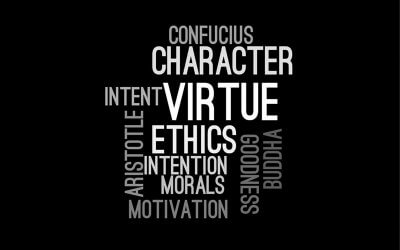Discover how understanding the limitations of averages and embracing probabilistic thinking can improve decision-making and risk management in business.

Word War II and Hubris
World War II started 80 years ago today with the German invasion of Poland. It ended six years later, with over 70 million dead.
I would argue hubris was a significant contributor to World War II. Hubris is the wanton insolence or arrogance resulting from excessive pride or passion. It is the classic temptation of mortals who, finding themselves garbed in the unaccustomed robes of leadership or success, start imagining themselves bulletproofed against disaster — and so tempt the fates. Their own belief that they will prevail is enough to qualify as excessive hubris when they are defeated.
I believe that there is a theme of hubris in the cause of the war and the eventual outcome, as set out below:
-
World War I. Russian hubris started the war. However, the arrogance of the British, French, and Germans encouraged it as each believed in they were right, and they would win the war quickly. Four and half years later and 40 million dead was the cost.
-
The Treaty of Versailles, due to the hubris of the victors, included the War Guilt clause, which John Maynard Keynes referred to as a “Carthaginian peace.” Although there were anti-war rallies at the end of World War I in Germany, many Germans remembered the humiliation of the War Guilt clause. It was this humiliation that made it easier for Hitler to convince the German people that there was a need for more war in the lead up to World War II.
-
German rearmament, in violation of the Treaty of Versailles, began shortly after the Treaty was signed, but exploded after the Nazis came to power in 1933. Despite warnings from Carl von Ossietzky, Winston Churchill, and others, Western leaders were willing to condone a rearmed and powerful anticommunist Germany as a potential bulwark against the emergence of the USSR. I would argue that their hubris, like those of the Weimar political parties, led them to believe they could control Hitler while needing him.
-
The Munich Agreement and Chamberlain’s “Peace in our time” was done to stop the outbreak of war. However, Hitler was potentially weak because of a planned coup by the German General Staff; and as Czechoslovakia had a modern well-equipped army, a war would Germany many lives. Finally, not defending Czechoslovakia made Hitler confident that the Western powers would never effectively oppose him. I would argue that hubris once more played as a role. Chamberlain believed that through appeasement, he could prevent war, and as his main concern was the USSR, he ignored all evidence and information to the contrary.
-
World War II began, as a result, of the British “guarantee” to the Polish colonels, who were on the verge of returning that part of Germany that Poland had acquired from the Versailles Treaty. The Poles, not realizing that the British had no way of standing behind the guarantee, refused to return the lands to German. The refusal was an act of defiance that was too much for Hitler and the superior Aryan race, Germany invaded Poland, and Britain and France declared war.
-
The Battle for Moscow, the first significant defeat of the Wehrmacht at the hands of an ascendant General Zhukov, was a turning point in the Russian campaign.
-
The Battle of Midway was intended to be the knockout blow that Pearl Harbor was not, where the American carrier fleet could be lured out and decimated by the Japanese. However, Japanese indecision and American luck resulted in a significant victory for the Americans, decisively turning the war in the US’s favor.
There are many examples of hubris in business that reflect the destruction of organizations. The greatest to me in recent history was the Financial Crisis of 2008, where all the issuers of CMOs and CDOs believe that property values would always go up. Another recent example to me was the destruction of Sears and KMart by Eddie Lampert.
Thus in life and business, we need to stop hubris before it destroys us. The benefits of the Wisdom of Crowds is known to many. However, these benefits can turn to negatives when Crowds are: not diverse; there is no specific answer, and social influences impose too much pressure. Thus the adverse effects of crowds exist in most corporate environments. How do you keep it at bay? In Vistage, I tell members the role of Vistage is to question your assumptions and stop hubris. I hope you have a group that will help you prevent your arrogance before it destroys you.
© 2019 Marc Borrelli All Rights Reserved
Recent Posts
The “Flaw of Averages” Causes Havoc for Businesses
What is Your Strategy, In a Sentence?
If you are banking on the vaccine returning us all to “normal” quite quickly, in the famous words of Dr. Akande, “Hope is not a strategy.” Your organization should be preparing a well-defined strategy for 2021 and beyond. Once you have this strategy, the ultimate question: can you clearly articulate it in one sentence? Distilling your strategy into a single sentence is a powerful tool, both for your legacy and your team effectiveness. Not sure where to start? I offer a plug-in formula to set up your strategy sentence.
Character Matters
“It’s easier to hold to your principles 100% of the time than it is to hold to them 98% of the time.” — Clayton Christiansen. I have often written about the importance of a company’s Core Values. That’s because no matter what words you may have chosen as values, your organization’s Core Values are on display in how leadership and employees actually behave. As I’ve said before, how you have acted in the last twelve months will define your career for the next decade. Your character, and your company’s character, matters.
New Year’s Resolutions, Once More Unto the Breach
The holidays have been even quieter than normal, which has given me plenty of time to reflect on my New Year’s resolutions. Looking at 2021, I decided to use a completely new approach to lay out my goals. The result of my new approach? A highly-detailed, accountable, actually achievable plan for the next year (I think). Wondering what this process looks like?
To Vaccinate or Not to Vaccinate, that is the Question
What do your employees, peers, and leadership team think of the COVID-19 vaccine? Will you require the vaccine, or will you let employees make individual decisions? As a leader, you need to steer the discussion about vaccines in your organization with your Core Values in mind. No matter what strategy your organization takes, the most important factor is going to be how you communicate your decision.
3 Ways You Could be Undermining Your Core Values
Can you answer “Why does your organization exist? What are your core values?” Great. Now, would your latest entry-level employee give a similar answer? How about someone who has been at your company for a year? Your core values give your organization a guiding mission. Many organizations pay this idea lip service, but their true commitment to their core values was tested this year. As we close out 2020, there’s no better time to examine how your organization is approaching your core values.
Are You Prepared for 2021 With Enough Cash?
Companies don’t go bankrupt because they lose money; rather, they run out of cash. Where are we, heading into 2021? First, you can expect your cash to get tighter as we weather the current economic slowdown. Then, with a vaccine on the horizon, you will need to be positioned for growth. If you don’t have the cash you need, have you looked at how you can generate the cash internally? More on how to improve your cash conversion cycle…
Tony Hsieh, a Corporate Culture Icon, RIP
In his work as Zappos CEO and elsewhere, Tony Hsieh believed, and proved, that culture is the most important thing in an organization. According to Hsieh, if you get the culture right, the rest will take of itself. How did Zappos do it? You can take a look at everything from the company’s interview questions, to “The Offer” to leave a position as a new hire. Hsieh believed that a company’s brand is just a reflection of the culture, and his legacy is felt across so many industries.
CEO, Try Thy Hiring System
How does your company hire? I’ve seen the good, the bad, and the surprisingly ugly hiring processes in my career. From the HR email mix-ups to the interviewer watching the World Series while I responded to his questions, I’ve learned that you can tell a lot about an organization simply by examining the hiring experience. Are you chasing away the kind of people you need at your company?
What is Leadership?
What is it, exactly, that great leaders do? There are plenty of overused adages about “leadership” in business. It’s worth examining the tropes around leadership, plus the traits of the leaders who actually leave a mark. Great leaders are forged through adversity, and they leave a legacy. What does that look like in your organization?










